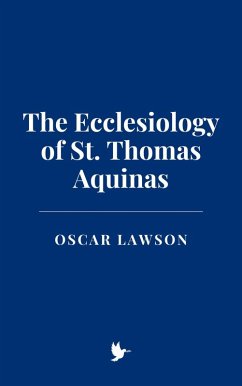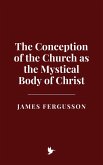The Church in the 13th century faced a range of challenges. The papacy, under Pope Innocent III (11981216), had reached its zenith, asserting significant authority over both temporal and spiritual matters. However, the period was also marked by growing tensions within the Church, such as the conflict with secular rulers, especially the Holy Roman Emperors, and the challenge posed by emerging heresies like the Albigensian and Cathar movements. Within this environment, theologians like St. Thomas sought to clarify and defend the Church's role as the divinely established instrument for salvation.
Aquinas' ecclesiology is deeply rooted in his theological method and his understanding of the relationship between reason and faith. He argued that the Church, as a divine institution, is both a visible society and a spiritual reality, a tension that lies at the heart of his thought. The Church's role in salvation, according to Aquinas, is mediated through the sacraments, with the Eucharist being at the center of the Church's life. He held that the Church was necessary for salvation, as it was the vehicle through which God's grace is communicated to humanity. This belief was rooted in the tradition of the early Church Fathers, especially St. Augustine, but Aquinas provided a more refined and systematic analysis of ecclesial concepts.
Dieser Download kann aus rechtlichen Gründen nur mit Rechnungsadresse in A, B, CY, CZ, D, DK, EW, E, FIN, F, GR, H, IRL, I, LT, L, LR, M, NL, PL, P, R, S, SLO, SK ausgeliefert werden.









